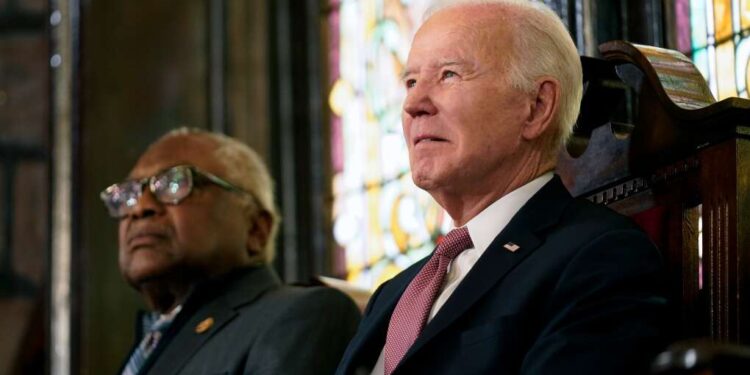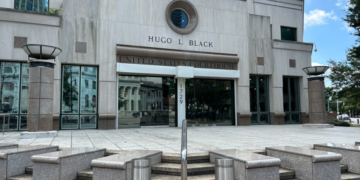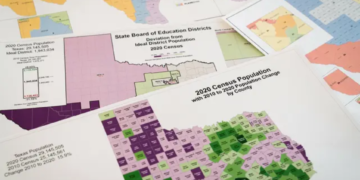CHARLESTON, SOUTH CAROLINA – U.S. President Joe Biden, responding to protesters shouting “Ceasefire now,” on Monday said he had been working quietly with the Israeli government to encourage it to reduce its attacks and “significantly get out of Gaza.” Img source: ctvnews.ca
April 17, 2024 Story by: Publisher
Black voters are expressing doubts about President Joe Biden’s reelection prospects due to his handling of the ongoing conflict in Gaza, according to The Washington Post.
In Pennsylvania, a pivotal swing state where Biden secured victory by a narrow margin, concerns are mounting among Black opinion leaders and activists. Despite Biden’s substantial support from the Black community, recent events in Gaza have prompted some to question their allegiance.
The protracted conflict has cast a shadow over domestic issues like the economy and crime, leading many to reevaluate their support for Biden. Critics argue that his stance on the Gaza crisis, which has resulted in significant Palestinian casualties and widespread suffering, contradicts principles of justice and morality.
During Biden’s recent visit to Pennsylvania, demonstrators voiced their discontent, accusing him of complicity in genocide and demanding justice for Gaza. Rev. Mark Tyler of Mother Bethel AME Church emphasized the profound resonance of the Gaza conflict within the Black community, warning that Biden’s response could impact his electoral prospects in November.
In response to Biden’s perceived shortcomings, grassroots movements have emerged urging voters to express their dissatisfaction through the ballot box. Initiatives like the “uncommitted” campaign in Michigan signal a growing discontent with Biden’s policies on Gaza, with similar efforts gaining traction in other states. Source: Almayadeen.net
Activists draw parallels between the Gaza conflict and historical struggles against racism, invoking the legacies of Jim Crow and apartheid. This framing underscores the moral imperative of holding Biden accountable for his actions.
Despite Biden’s efforts to court Black voters through targeted advertisements and policy initiatives, skepticism persists. Some, like Melina Abdullah, question the efficacy of mainstream political parties in addressing the needs of marginalized communities, advocating for alternative voices and approaches.
As the 2024 election looms, Biden faces mounting pressure to address concerns within the Black electorate and reckon with the implications of his foreign policy decisions on domestic politics.

















